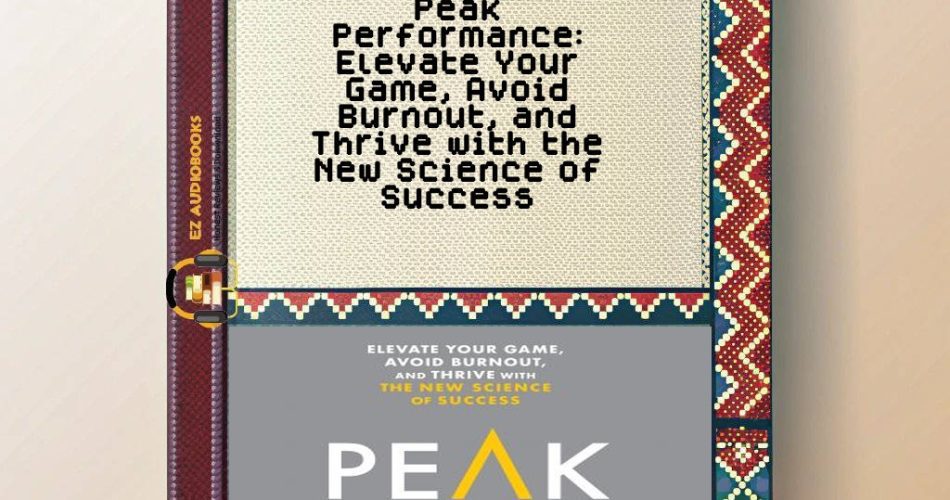Audiobook Sample
Listen to the sample to experience the story.
Please wait while we verify your browser...
- Title: Peak Performance: Elevate Your Game, Avoid Burnout, and Thrive with the New Science of Success
- Author: Brad Stulberg, Steve Magness
- Narrator: Christopher Lane
- Length: 06:35:07
- Version: Abridged
- Release Date: 06/06/2017
- Publisher: Brilliance Audio
- Genre: Business & Economics, Non-Fiction, Self Development, Career Development, Health & Wellness, Psychology, Business & Economics, Non-Fiction, Self Development, Career Development, Health & Wellness, Psychology
- ISBN13: 9.78E+12
As someone who has spent decades analyzing narratives across cultures and mediums, I approached “Peak Performance: Elevate Your Game, Avoid Burnout, and Thrive with the New Science of Success” with both professional curiosity and personal need. The last year of balancing teaching, research, and my podcast had left me teetering on the edge of burnout, making this audiobook’s promises particularly compelling.
What fascinates me most is how Stulberg and Magness weave together diverse performance domains – from Olympic athletes to groundbreaking scientists – much like a skilled novelist interconnects narrative threads. Their approach reminds me of teaching Murakami’s works in Tokyo, where magical realism blurs boundaries between disciplines. Here, neuroscience, psychology, and athletic training coalesce into a unified theory of excellence.
Christopher Lane’s narration deserves particular praise. His measured, articulate delivery mirrors the book’s balanced approach – neither overly exuberant nor dryly academic. The audio quality is pristine, allowing complex concepts about stress cycles and recovery periods to land with clarity. I found myself replaying Chapter 4’s explanation of ‘stress + rest = growth’ during my morning walks, appreciating how Lane’s cadence emphasized key insights without melodrama.
The book’s core framework resonates deeply with my experiences teaching intensive seminars. The authors’ distinction between ‘performance’ and ‘purpose’ parallels my observation that students thrive when they connect technical skills to larger intellectual quests. Their research on deliberate practice confirms what I’ve witnessed in literature students – that focused, iterative work yields better results than marathon study sessions.
However, through my cultural studies lens, I noted some limitations. The case studies skew heavily Western and individualistic. While the science transcends cultures, I found myself wondering how these principles might manifest differently in collectivist societies – a question stemming from my comparative literature background. The audiobook could have benefited from more diverse performance examples.
Compared to similar works like Mark Manson’s “The Subtle Art of Not Giving a F”uck”, “Peak Performance” offers more empirical grounding while maintaining accessibility. Where Manson relies on provocative anecdotes, Stulberg and Magness build arguments through interdisciplinary research. The audiobook format particularly enhances their methodology, making dense scientific concepts digestible through Lane’s skillful narration.
For listeners considering this audiobook, I recommend pairing it with active reflection. I kept a notebook handy to jot down applications for my academic work, finding the ‘priming rituals’ section transformative for preparing lectures. The audio format’s flexibility allowed me to engage with challenging material during commutes, turning downtime into productive learning.
What makes this audiobook exceptional is its balance of inspiration and practicality. Unlike many self-help works that either overwhelm with data or oversimplify complexity, “Peak Performance” achieves what I strive for in literature seminars – it meets listeners where they are, then elevates their understanding. The final chapter on sustainable success left me with a profound sense of possibility, much like finishing a great novel that lingers in your consciousness.
With scholarly appreciation and a renewed commitment to balanced excellence,
Prof. Emily Chen

